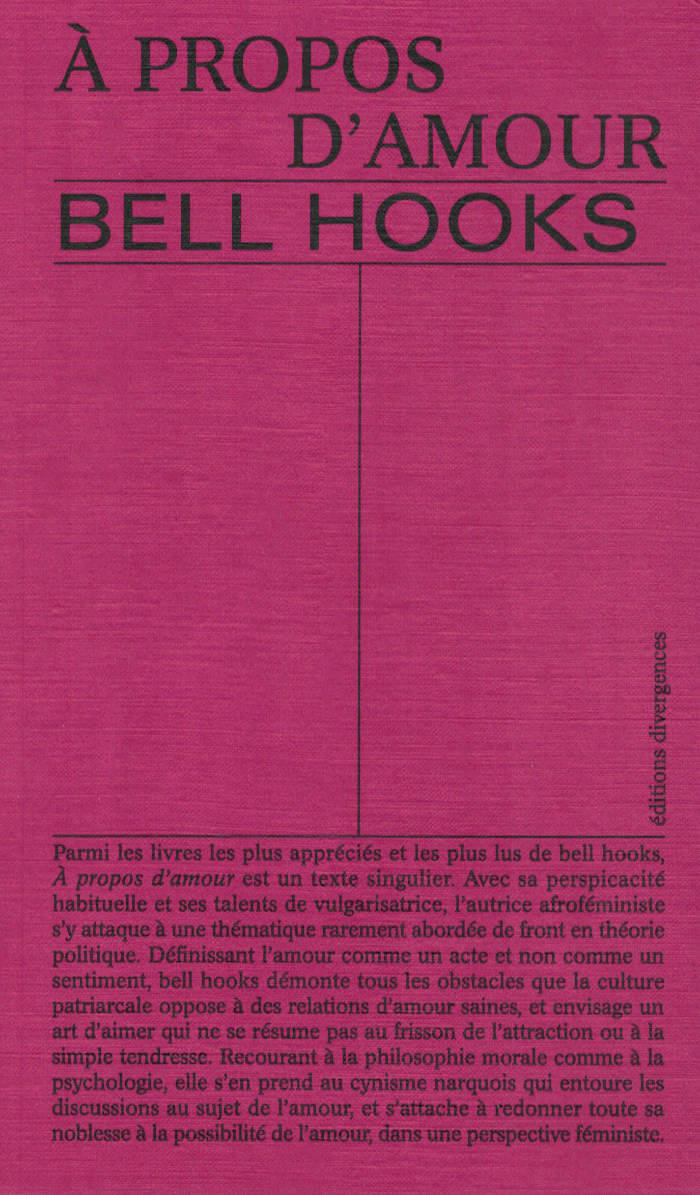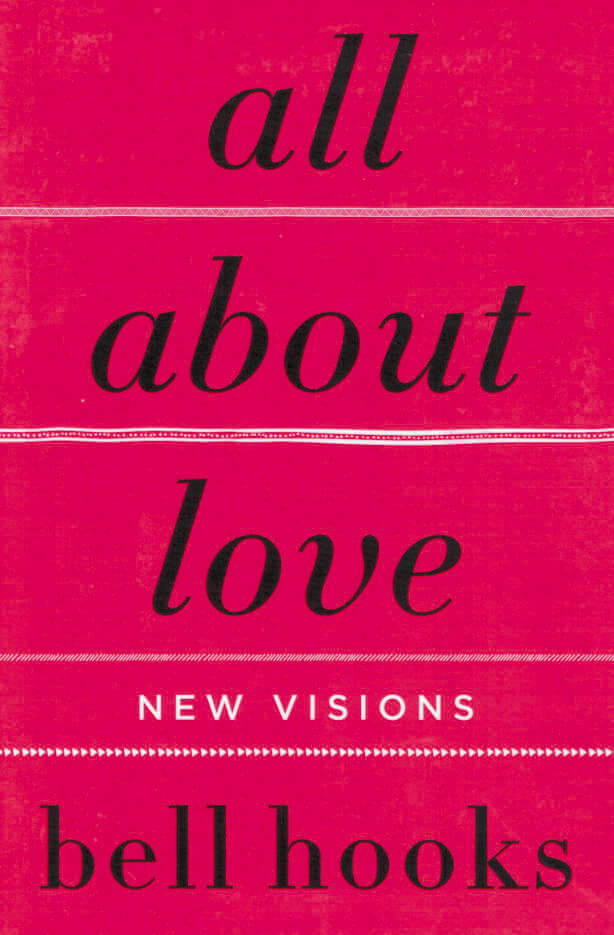
À Propos D'Amour
Parmi les livres les plus appréciés de bell hooks, À propos d’amour est un texte singulier. Avec sa perspicacité habituelle et ses talents de vulgarisatrice, l’autrice afroféministe s’y attaque à une thématique rarement abordée de front en théorie politique. Définissant l’amour comme un acte et non comme un sentiment, bell hooks démonte tous les obstacles que la culture patriarcale oppose à des relations d’amour saines, et envisage un art d’aimer qui ne se résume pas au frisson de l’attraction ou à la simple tendresse. Recourant à la philosophie morale comme à la psychologie, elle s’en prend au cynisme narquois qui entoure les discussions au sujet de l’amour, et s’attache à redonner toute sa noblesse à la possibilité de l’amour, dans une perspective féministe.
GLORIA JEAN WATKINS, connue sous son nom de plume BELL HOOKS, née en 1952, est une intellectuelle, féministe, et militante étasunienne. Elle a publié plus de trente livres et de nombreux articles, et est apparue dans plusieurs films documentaires. Traduits dans de nombreuses langues, ses ouvrages sont considérés parmi les plus importants sur la question aux Etats-Unis et suscitent un réel engouement en France depuis quelques années. Les éditions divergences ont déjà traduit et publié deux de ses ouvrages Tout le monde peut être féministe et La volonté de changer.
Language: French







